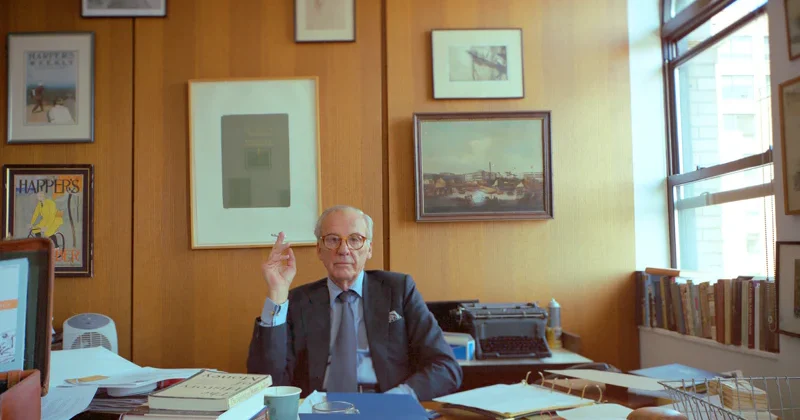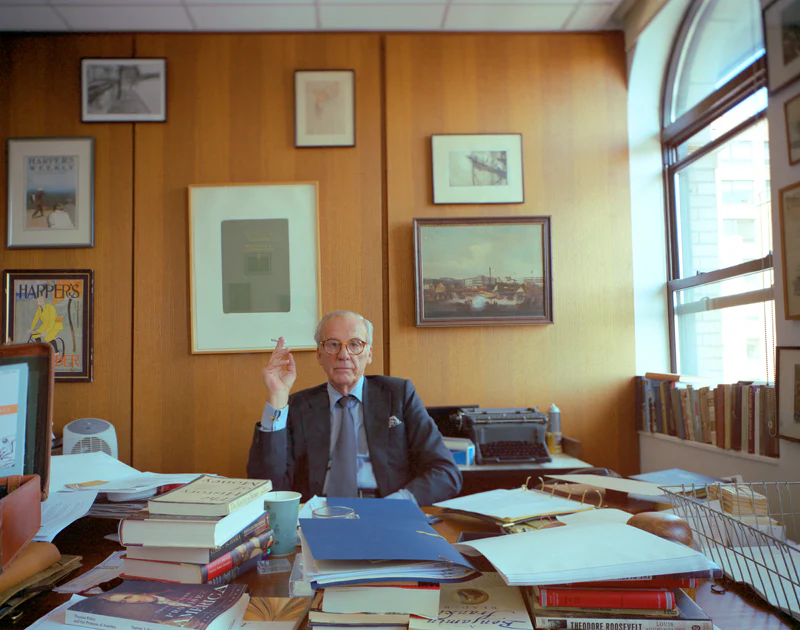

I loved this piece on the late magazine editor and writer Lewis Lapham. The author is Elias Altman, a former Lapham staffer. I was a regular reader of Lapham’s Quarterly before it went on hiatus. Now that Lapham is gone, I wonder if it will ever come back. I hope so.
Anyway, here is a taste of Altman’s piece at LitHub:
Lewis inspired among people who worked under him a remarkable degree of allegiance. He possessed the politician’s or cult leader’s knack for making you feel it’s-just-you-and-me during a conversation—his trained eyes, that smile, the laugh. But it wasn’t a put-on or a ploy, it was a principle, and his pleasure. You never got the sense that, down the road, he might suggest it was time to throw back a cup of Flavor Aid and meet your maker, or press you into invading a country under false pretenses. You didn’t strive to please Lewis so much as to delight him. He wasn’t interested in followers, clones, or acolytes (although we existed). What he was looking for were playmates.
For all his erudition and elegance, Lewis was a child. And I mean that in the way only a new father can, seeing how by comparison the rest of us—forced to become “sivilized” as Mark Twain said, puffed into “phonies” as J.D. Salinger had it—slowly and steadily become deracinated from our playful terroir. For Lewis, the greatest game was running a magazine. He played with words and ideas like a beautiful set of hand-hewn stone blocks. He loved the Dutch historian Johan Huizinga’s book Homo Ludens, about the formative role of play in human culture, its five defining characteristics: “1. Play is free, is in fact freedom. 2. Play is not ‘ordinary’ or ‘real’ life. 3. Play is distinct from ‘ordinary’ life both as to locality and duration. 4. Play creates order, is order. Play demands order absolute and supreme. 5. Play is connected with no material interest, and no profit can be gained from it.” Lewis discovered and disseminated a way of life and work that was essentially play. So I guess, in the end, he tossed rules 2 and 3 into the trash.
Here are some things Lewis Lapham taught me. If you’re going to reject a writer’s manuscript, do so quickly and honestly—don’t make them wait for weeks and then fall back on the old: “I loved this, but my boneheaded colleagues…” The writer of a piece has to be curious, and their curiosity has to make you curious, too. Find the best writers and ask them about what interests them (which is how I got to edit Anne Fadiman, Pico Iyer, and Daniel Mason). Edit with a pen, as if you were conducting a symphony. Writers have been told their entire lives they shouldn’t do this or that, and certainly not for a living, so arm them lavishly with confidence (but do not overpay them). When assigning, your existential role is to give writers permission, or even, on occasion, make them aware of their responsibility. Take Barbara Ehrenreich. Over a fancy lunch with Lewis one day in the 1990s, Ehrenreich wondered aloud how women screwed over by welfare reform would manage to make do on $6 or $7 an hour and said that some journalist should go out and see what it was like, old school. “I meant someone much younger than myself,” Ehrenreich later recalled, “some hungry neophyte journalist with time on her hands. But Lapham got this crazy-looking half smile on his face and ended life as I knew it, for long stretches at least, with the single word ‘You.’” Ehrenreich went on to write Nickel and Dimed.
The best writers love being edited; it’s the bad ones who resist. Writers don’t always know what’s best about what they write, and usually things only start to get really interesting on the final page of the first draft. The set-up of an essay is everything—a great title is imperative, too—so nail the “nut graf,” establishing the goddamn stakes of the thing early on and clearly. Editing is often compared to surgery in the form of incisions and extractions—the scalpel—but what struck me most about Lewis’s handiwork was how he sutured, stitching sentences together as he read, ever-tightening. (I still have a copy of a manuscript he edited, in front of me, in fifteen minutes.) Most writing has the charm and originality of a prefabricated henhouse, so don’t be a party to it. Substance is a must, but if the prose doesn’t sing, where’s the pleasure in reading it? Syntax is meaning. Still, don’t be afraid to sprinkle a bunch of “TK facts” throughout a writer’s manuscript to keep them honest.
Read the entire piece here.
Beautiful.